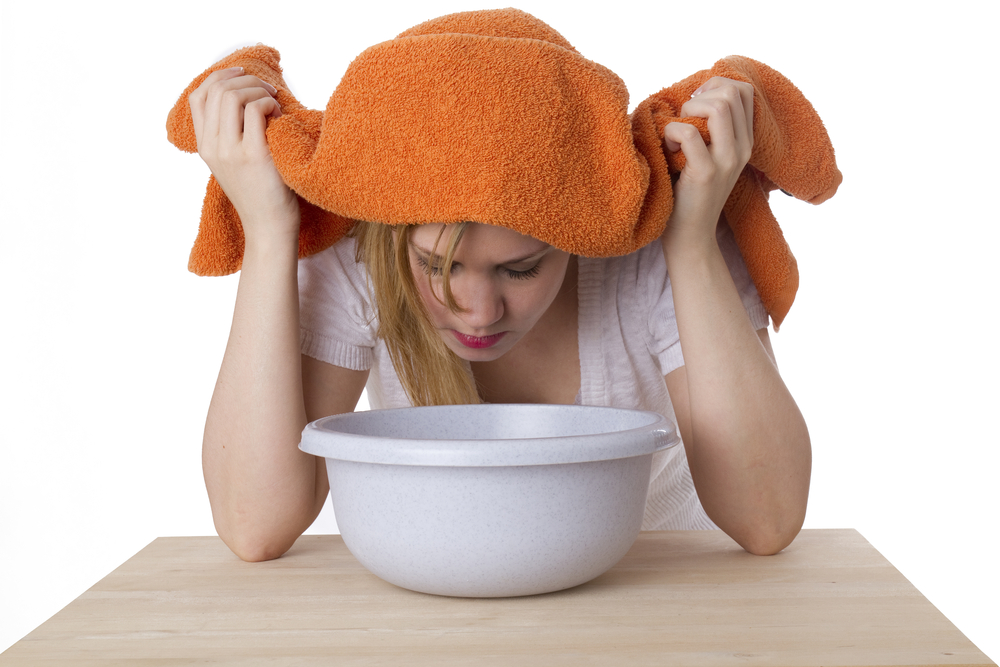
Upper respiratory infections can strike virtually any time, but they are more likely to happen in the colder months during fall and winter. You should try and limit your exposure to people who have coughing and sneezing symptoms and give your immune system a boost during these months by ensuring that you are getting enough rest and drinking plenty of water. Handwashing is especially important as well, and you should wash your hands frequently throughout the day using hot, soapy water for an extended 45 seconds or so. Experts recommend singing the “Happy Birthday” song twice if you are wondering how long that would be. SmartDocMD’s online doctors can treat you for an upper respiratory infection, but these natural remedies for upper respiratory infection may also help you to combat symptoms, as well.
Anytime you have an upper respiratory illness, you likely have a bit of mucus in your chest. Use these remedies to combat the mucus. If you would like to see a doctor online, use SmartDocMD online doctor service and start your treatment from the comforts of your home.
Drink Warm Fluids
Not only will the warm fluids soothe your sore throat from coughing and make it easier for you to expel the mucus in your chest but drinking warm fluids will also help you to stay hydrated. Drinking warm water, hot black or green teas (decaffeinated is best for combating an illness), or herbal teas will help you tremendously.
Some people like to use Echinacea tea to stimulate their immune system and provide it with some back up during the fight against the infection. The tea not only hydrates and soothes, but it gives your immune health a bit of a boost. Others like using Chamomile tea or peppermint tea to stimulate the senses that may be reduced from the illness.
Use Steam
If you have a humidifier or a steam vaporizer that disperses moisture into your surroundings, you should begin using it. If you don’t have one, think about purchasing one as moist air will loosen mucus and help to dramatically cut down on the congestion in your chest. You’ll also notice that you cough less and less as you use it. Be careful when using a humidifier or vaporizer though, they should be cleaned thoroughly, frequently every other day or so. You do not want to allow bacteria to set up shop inside of the humidifier and thus disperse into the air during use.
If you don’t have a humidifier, and do not want to purchase one, you can also shut the bathroom door and use the hottest water setting possible on your shower and allow the bathroom to steam up. Sit in the bathroom during this, and breath in the moist air for about 10 minutes. Some people also set up a large bowl with hot, steamy water and place their head over it with a towel over their head. If you are doing the bowl or bathroom steam method, you should drink a glass of water afterward to reduce the chance of becoming dehydrated.
Gargle with Saline/Saltwater
Adding a half a teaspoon of salt to one part cup of hot water and gargling with it can reduce the amount of phlegm and mucus in the back of the throat. It will alleviate the symptoms of sore throat, as well. You can do this many times a day to keeping getting the benefit.
Use Honey
Honey that is organic and naturally produced from a source near your region is the best type of honey to use in the fight against cough and upper respiratory infections. Honey is a demulcent, making it perfect for healing irritated mucous membranes in the throat and chest. It can also cut down on the feeling of needing to cough when you have an illness. Studies have shown that it also has antibacterial and antiviral qualities making it the perfect natural immune system supporter.
Eat Garlic
Garlic is a food that can be used to alleviate illness and mucus buildup. In some circles garlic is known as a power food because of its source of phytochemicals. These natural chemicals are known to fight off infection, disease and boost the immune system. If it can help to reduce high blood pressure, high cholesterol, heart disease, different cancers, and work to assist blood circulation, it’s definitely worth incorporating into your healthy diet.
Vitamin C Foods – Lemon, Limes, Oranges, Mandarins, Grapefruit & Others
We commonly hear about eating oranges when we are sick, but all citrus fruits can be incorporated into your diet, to boost your level of Vitamin C. Vitamin C plays a role in boosting our immune system. Vitamin C, also known as Ascorbic Acid, is in other fruits moreso than Oranges. Guava, kiwi, and papaya contain more Vitamin C than oranges. Tomatoes also have more Vitamin C than oranges.
Incorporate Ginseng into your Diet
Ginseng is a powerful antioxidant that may promote the immune system. It has been used in traditional Chinese medicine for several hundred years. There are a few different types of ginseng. Some varieties are known to relax the nervous system, while others invigorate.
Licorice Root
A healthy, sweet treat, licorice root has been used to sooth gastro illnesses, however it contains immune boosting gylcyrrhizic acid.
Zinc
Zinc typically is used in treating the common cold. Zinc assists cells throughout the body, helping the immune system to fight off illness. Zinc is found in red meat, poultry, seafoods such as crab, lobsters, and whole grains, however oysters are the best source of zinc.
We treat all common non-emergency illnesses, not just upper respiratory infections. Find out more about treating sinus infections, the common cold, urinary tract infections, pink eye infection, and vaginal infections such as yeast.
